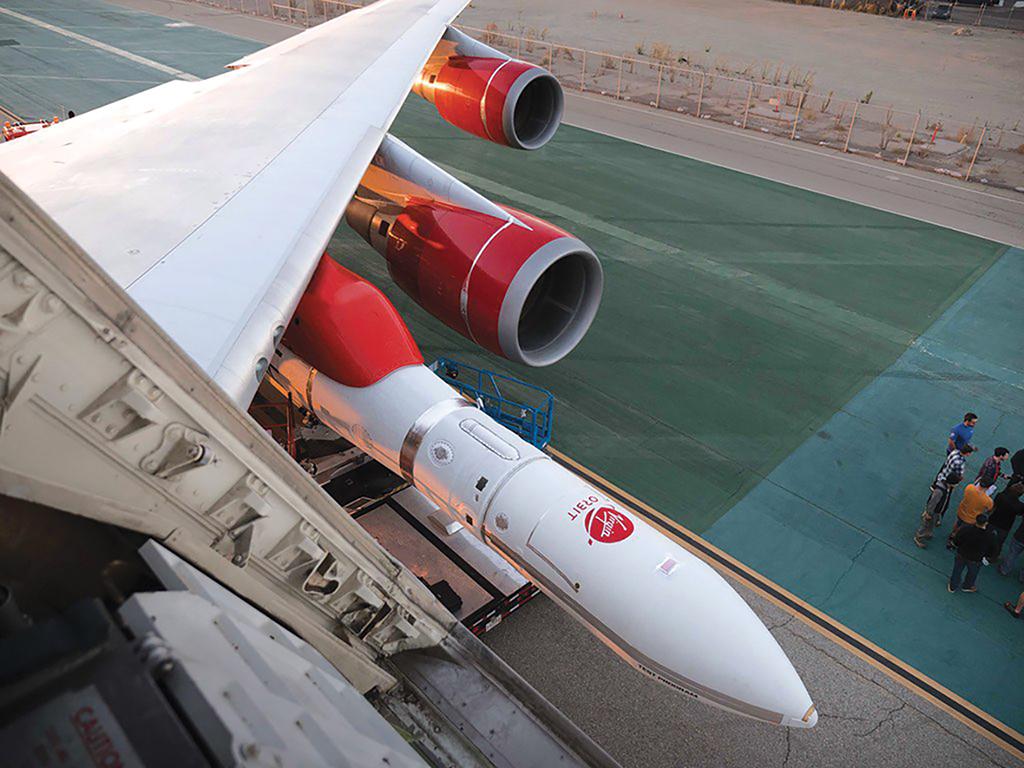Virgin Orbit To Launch, Offer Own Satellite-based Data Services, Fleet

Virgin Orbit, the airborne small-satellite rocket launch upstart that announced its intent to go public Aug. 23, apparently will build and offer a fleet of Earth-observation (EO) and internet of things (IoT) satellites starting in 2023, according to investor materials.
A test fleet of four satellites, two each for EO and IoT services, are slated for critical design review in early 2022. Air launch via Virgin Orbit’s 747-based system in 2023 is targeted around spring. The Long Beach, California, startup expects to devote a quarter of its proceeds from its business operations and investments to develop the satellite system in 2021-23.
A goal of full-fleet build-out is seen after 2023. The Virgin Orbit approach also entails investments in complementary constellations. Partner agreements for the space-enabled data and analytical services include Arqit, BigBear.AI, Redwire, HyperSat and SAS. The system will offer electro-optical, synthetic aperture radar and infrared-hyperspectral imagery.
Among efforts to differentiate its service, Virgin Orbit will lean upon its air-launch system’s seemingly easier and locale-friendlier approach to lofting satellites off the ground via aircraft, rather than competitor launchers’ more fixed-base rocket systems. In turn, that could allow national customers of the satellite service to have full local, legal control over the fleets and data that are launched from runways in their own countries.
Virgin Orbit foresees a total addressable market of $8 billion for EO and value-added data services, and another $25 billion for selected IoT-related applications.
The satellite fleet and services is just one of many other business markets that Virgin Orbit proposes it could pursue. Others include potential hypersonic weapons work for the Pentagon and other national security launch needs for the U.S. and allies. According to materials, Virgin Orbit has $300 million in active contracts and expects another $1.3 billion worth of active proposals along with $2.3 billion worth of “identified opportunities.”
Virgin Orbit projects to go from $15 million in expected revenue this year to almost $2.1 billion in annual revenue by 2026, representing a 166% compound annual growth rate. Of the latter, $436 million would come from so-called space solutions, while $789 million would come from commercial and civil launch business, and $838 million from national security and defense business.
By the end of 2026, the materials project pretax earnings of $854 million. But the company forecasts annual operating losses through 2023 until earnings reach the black in 2024.





